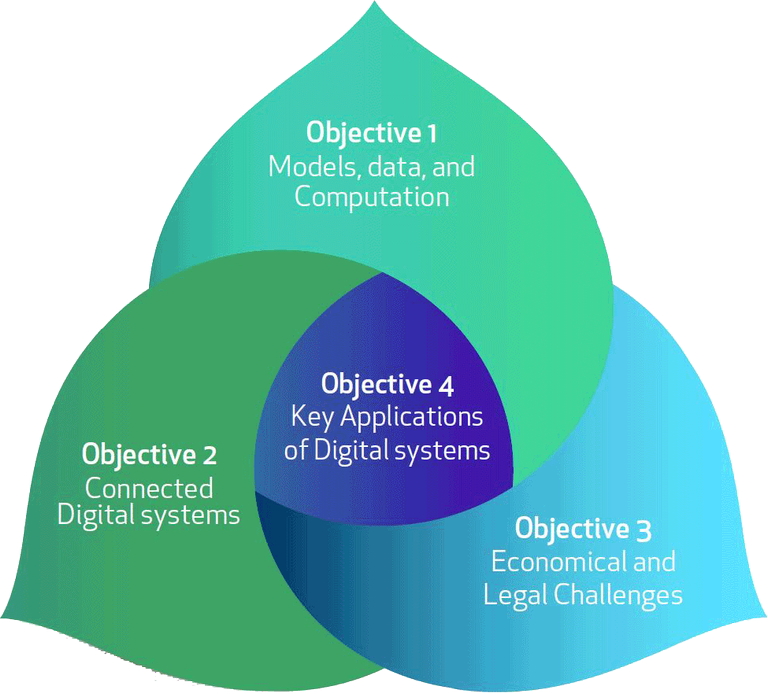Research and Labs
DS4H Scientific Vision and Objectives

DS4H addresses how technologies, institutions, business strategies and user behaviour interact in all phases of the innovation processes of digital systems.
- Developing the convergence of Models, Data, and Computation
-
The digital world is experiencing tremendous changes due to a combination of factors including technological leaps in electronics and hardware, fundamental progresses in mathematics and computer science, and the massive availability of digital data. Deep learning is an archetype of this evolution as its success is largely due to a combination of fast parallel computers, advanced software engineering, progresses in applied mathematics and the collection of big data. The convergence between models, data and computation will lead to the development of safe digital systems and infrastructure that can assist humans to understand complex phenomena, plan complex tasks and make decisions in complex environments. Meeting this objective requires disciplinary advances in electronics, software engineering, applied mathematics, high performance computing and machine learning. It also requires the integration of technologies and knowledge to achieve the development of safe and efficient digital systems.
- Harnessing the complexity of connected digital systems
-
With the massive growth of connected citizens and connected devices (IoT), digital systems have evolved to reach new levels of complexity, transforming the user into an actor of a global network of connected objects and services. The scientific objective of DS4H is to study in a transverse manner the design, modelling, interaction and services of these connected systems by fertilizing the different expertise of its partners: from electronics and sensors, to new generation of wireless and wired networks, to distributed computing, data analysis and access services.
Sophia Antipolis is a clearly fertile ground to tackle those transdisciplinary problems as it gathers established leaders in the fields of the telecommunications systems, distributed computing, artificial intelligence, robotics, Cyber-Physical Systems, connected objects and IoT. - Anticipating the economical and legal challenges of digital systems
-
With the intrusion of the digital world in the everyday life, it is important to foresee how users, customers, citizens, institutions, and companies will adapt and shape the future society. This objective aims at studying the legal, economical and organizational impacts of the digital revolution. Connected digital systems are producers and consumers of ordinary and personal data and their performance imposes the exchange of these data. This challenges the existing legal concepts and raises many issues in terms of digital trust, individual sensitivity to data confidentiality, the notion of “multiple responsibilities” and the protection of innovation. It leads to rethinking business models and ecosystems of digital innovations and the emergence of a logic of co-design that will involve humans in their interactions with digital systems. Another focus is the study of how the strategy of firms will adapt to the rapid innovation processes taking place in our digitalized society. In this context, it is necessary to rethink the link between the technical developments of these digital systems and the economical and organizational dimensions, including design processes, economic models and usage dynamics, in which humans become central.
- Developing key applications of digital systems
-
Digital systems are essential catalyzers of innovation in most application domains. This fact is well illustrated by the flourishing number of “smart systems” (smart grids, smart cities, smart buildings, etc). DS4H expands the scientific reach of its partners in key application areas by leveraging on the recognized strength of its academic and industrial ecosystems in full coherence with the UCAJEDI initiative. This last objective is clearly in full synergy with the three prior scientific objectives as it aims to leverage on their outcome to propose and address domain specific scientific problems. Specific focus will also be given to applications that address important societal challenges such as cyber security, energy efficiency, sustainability, and environmental protection.
